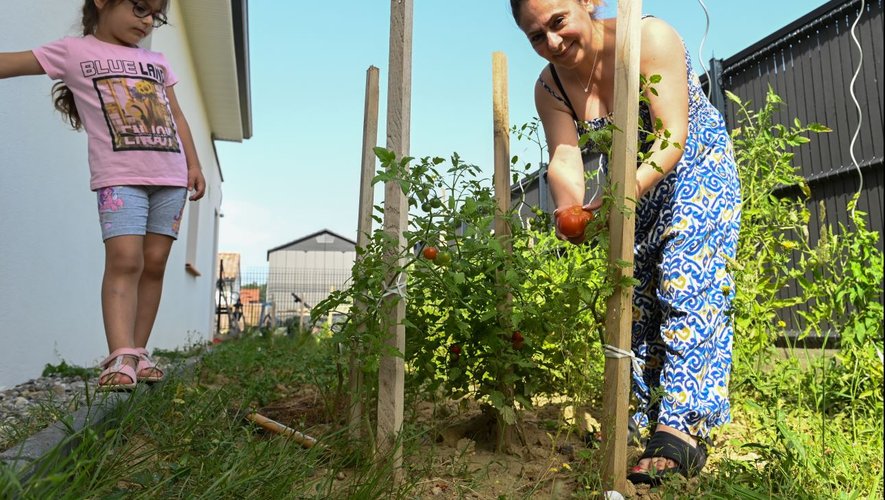The Gragnague asphalt plant (31) ceases its activity at the end of the week but many questions remain unanswered. The inhabitants of Gragnague wonder if the bitumen produced will have consequences for the environment and their health.
Tulay no longer touches his tomatoes. Her husband, who works in the construction industry, asked her to leave her vegetable garden in their pretty house located on the heights of Gragnague, north of Toulouse.
For this summer and certainly the following ones, this mother of two young children, employed in a college will be satisfied with vegetables from the supermarket. “Last night (Tuesday), with my husband, we drank coffee in the garden. The wind wasn’t too strong but it brought us a smell of burnt plastic. It was coming from the asphalt plant just downstairs. We had to go back inside and close everything tightly, ”says Tulay. The young woman still noticed a drop in odors for a good week, but “one evening, a few days ago, it was frankly unbreathable”. Testimony corroborated by the inhabitants of the district including Stéphane Rémusat, who lives barely 400 meters as the crow flies from the bitumen plant; “Following the winds, the smell is pestilential. My wife gave up hanging the laundry in the garden. Each time, it is covered with small black spots. »
“industrial secrets”
Summoned by the prefecture to comply with environmental regulations no later than July 11, Eurovia, which owns the plant which produces bitumen for the repair of the A 68 between Toulouse and Gémil, claims to have solved the problem: “All means have been implemented to reduce odors. As such, the teams installed a new treatment system on July 5, etc.). The samples taken during the week of July 10 attest to their compliance. We deplore the olfactory nuisances of the installation and what they can represent for local residents, but would like to recall that the measures in question relate to odors, i.e. a feeling, and in no case to the nature of the atmospheric emissions which are, for their part, completely compliant in terms of health standards, ”indicates the management of this subsidiary of Vinci. With the work completed, production should stop on July 21.
What the prefecture confirms: “He found during a check that, if the olfactory thresholds were higher than the regulatory thresholds, this was not the case for the discharges into the air, all of which complied with the thresholds, therefore not presenting any toxicity. As of June 27, odor thresholds were considerably lower. »
Anne Stambach-Terrenoir, the MP for the constituency, demands more guarantees. The LFI parliamentarian wants to have direct access to data collected by Eurovia concerning atmospheric emissions “covered by industrial secrecy” from the plant: “Nearby, there is still a high school, a school and a house for childminders, and a residential area. We can legitimately ask questions about the effect on health of these tar particles that wander through the air. During the meeting of July 17 (see box), the prefect told the elected officials present that he was going to ask the Cada (Commission for access to administrative documents) so that we could consult these documents. »
For Caroline Honvault, departmental councilor, of the canton of Toulouse 9, the services of the State should have acted much earlier: “Unfortunately, all this comes too late. Between the moment when the inhabitants alerted the authorities to these nuisances and the formal notice imposed by the prefect, too much time elapsed. Afterwards, we can also understand his position, there were two issues that confronted each other. On the one hand, it was necessary to secure the A68 by redoing the road network, on the other hand to put an end to the nuisances which have, until proof to the contrary, had no impact on the health of the population. »

